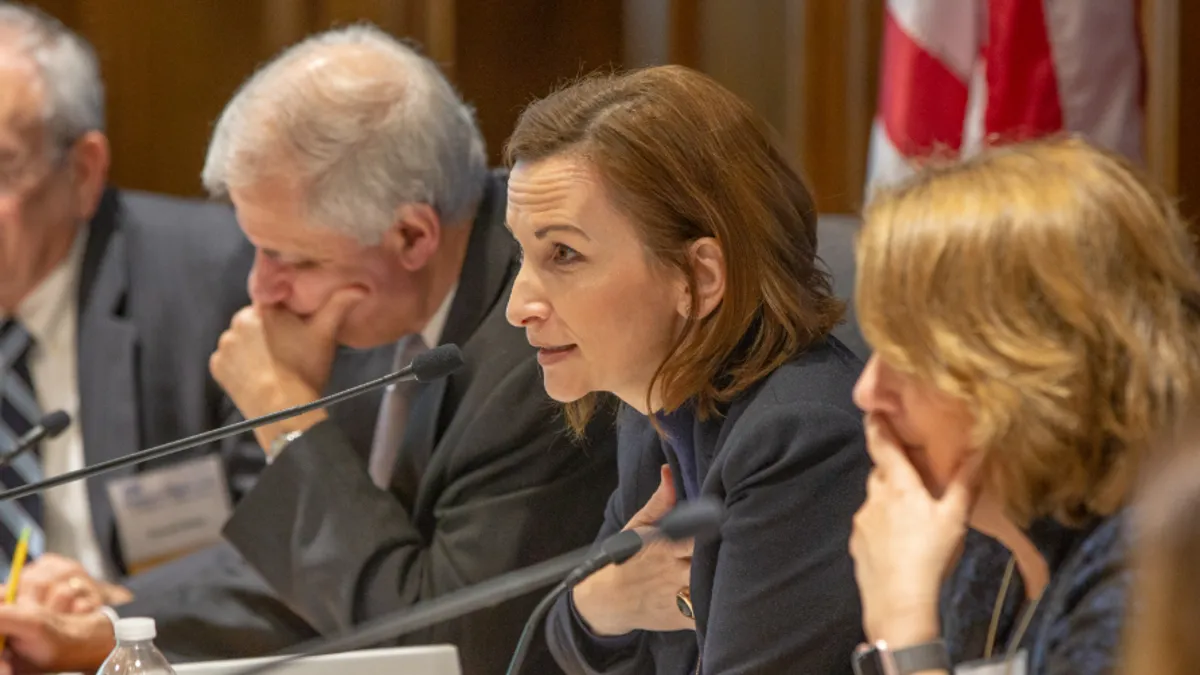The chair of the Federal Deposit Insurance Corporation (FDIC) yesterday asked the country’s accounting standards setter to delay the start of a new set of rules for how banks are to calculate expected loan losses.
Community banks and credit unions were to start using the new current expected credit losses (CECL) standard at the end of this year, but FDIC Chair Jelena McWilliams said the rule should be delayed due to the challenges posed by the pandemic.
"The nation’s banking industry is responding to rapidly evolving business conditions that are unprecedented in our history," McWilliams said in a letter to the Financial Accounting Standards Board (FASB). "Institutions … need to apply their full efforts, focus and resources toward working to ensure the safety of their staff, customers and local communities."
The economic fallout caused by shut-down businesses and remote working arrangements is expected to take a toll on banks’ books, too. "Banks may face higher-than-anticipated increases in credit loss allowances," she said.
Under CECL, banks are to account for all expected losses from loans upfront, which is expected to result in higher loss allowances than under the traditional method, which allows banks to wait until they start incurring losses before they make their estimate.
McWilliams also asked FASB to let the country’s largest banks, for which CECL took effect at the end of last year, to use the incurred loss method if they choose to on a temporary basis. "This will allow these institutions to better focus on supporting lending to creditworthy households and businesses, which will support the return of our economy to health."
Banks have been pressing FASB to rethink CECL for years, arguing it was imposed without sufficient input from them. Some members of Congress have been critical of the way FASB went about the process, and earlier this year, Rep. Brad Sherman (D-CA), chairman of a House subcommittee that oversees the accounting and auditing professions, said he wanted to take a look at the accountability of FASB, a private organization, given how impactful its decisions can be on business.
In response, a FASB spokeswoman said the organization is working with banks on their CECL concerns. "We’re ... continuing to work with financial institutions to understand their specific challenges in implementing the CECL standard," the spokesperson said, according to The Wall Street Journal.
McWilliams also asked FASB to let banks modify the terms of troubled borrowers’ credit terms without listing the modifications as concession, which is treated as a negative in their evaluations by bank regulators. "Institutions want to assist their customers but are worried about a modification being classified as a troubled debt restructuring," she said.














